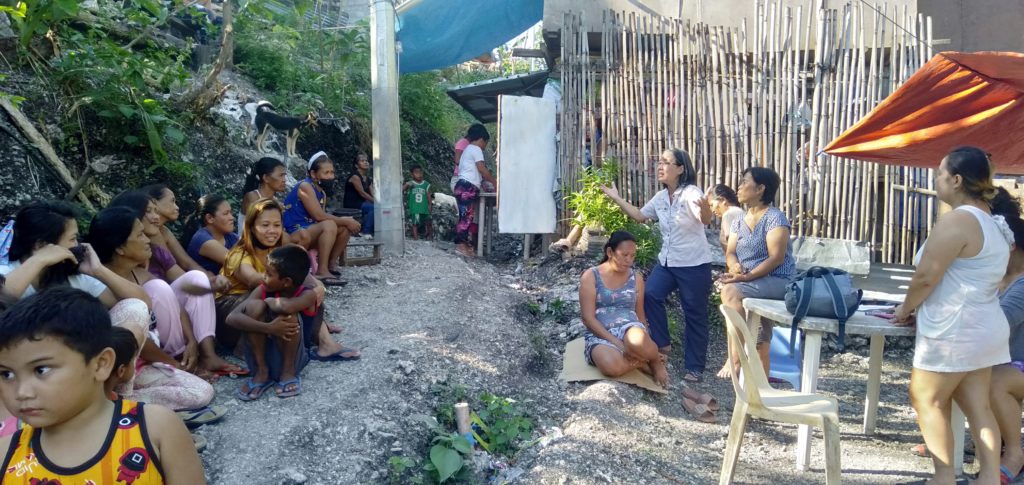A five-day basic health skills training, level 3, was conducted for community health workers (CHWs) of Cordova on September 8,, 9, 10, 15, and 16, 2017.
The BHST is part of the project, “Sustaining community-based health programs to promote health and prevent disease in Cebu,” supported by the Committee of German Doctors for Developing Countries. A total of 15 CHWs who attended the previous two levels of BHST attended the training.
The first topic was CHWs as effective agents of behavior change. The topic enhanced their skills during visits to families to provide education and counseling on healthy behaviors to prevent disease. They were taught important communication techniques to develop a good relationship with families under their care and to deliver counseling messages effectively.
The second topic was nutrition that enhanced the understanding of the CHWs on the importance of proper nutrition for growing children, and their skills to counsel households on the nutritional needs of children. The training enabled them to assess whether children in a household are eating the right food to fuel their growth and health, as well as counsel caregivers on the nutritional needs of their children.
The third topic was growth monitoring which enhanced their skills to monitor growth routinely, detect malnutrition, promote proper nutrition, and prevent long-term consequences for the child’s health and well-being.
The fourth topic was proper sanitation and environmental sanitation. The CHWs were trained on how to better advise household members to improve their sanitation practices and to provide valuable counseling on disposing of children’s waste and maintaining a hygienic environment.
The fifth topic was management of cough for children under five years old. They were taught to be able to better assess the severity of cough symptoms and identify serious degrees of respiratory symptoms that require a visit to the clinics.
The sixth topic was management of diarrhea of children under five years old. The CHWs were taught to be more effective in identifying the degree of severity in a child experiencing diarrhea, perform treatments, and provide recommendations appropriate for the degree of severity.
The seventh topic was on management of diabetes mellitus. The training equipped them with knowledge and skills to enable them to create awareness on how to recognize signs and symptoms of diabetes mellitus, to facilitate the prevention and control of the disease, to facilitate the treatment through referral to a health center, and to identify common complications.
The last topic was on cardiovascular diseases that equipped the CHWs with the knowledge and skills to enable them to create awareness on the prevention of cardiovascular diseases with a special emphasis on hypertension.



